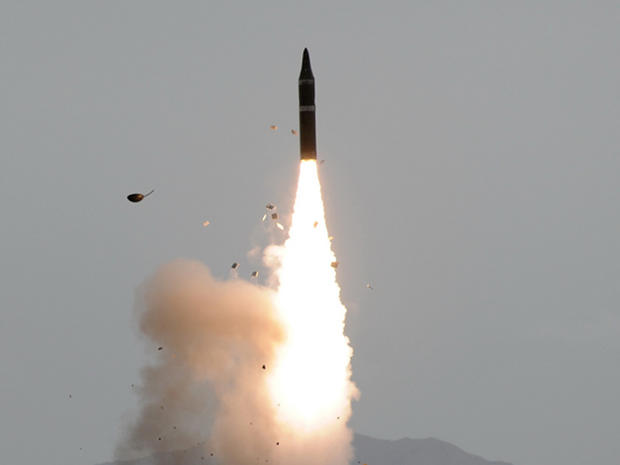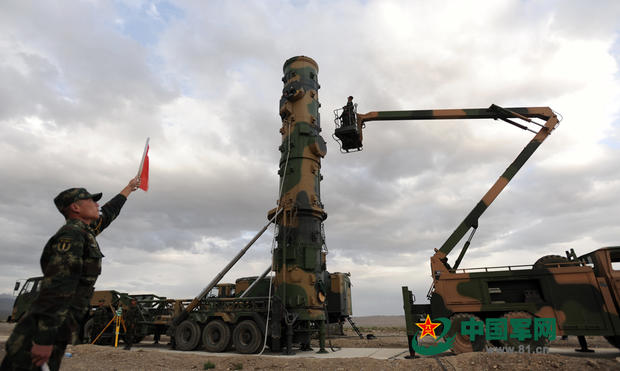Senior diplomat William Burns in China amid tension over Beijing’s military development, island disputes
BEIJING -- Visiting U.S. Deputy Secretary of State William Burns met Thursday with senior Chinese officials amid mounting tension between Beijing and Washington over China’s increasingly public displays of military might in the region.
As Burns arrived in Beijing earlier this week, China’s army showed off the first-ever images of its advanced
Dongfeng-31 intercontinental ballistic missile being tested.
Published Tuesday on a website affiliated with People’s Liberation Army (PLA), the photos show soldiers preparing and test launching the missiles, which put China’s nuclear warheads in range of the U.S. West Coast and most European capitals.
"Seeing this photo, Americans will of course take it as a sign of more remarkable military threat," Shi Yinhong, a professor of International Relations and director of the Centre on American Studies at China’s Renmin University told CBS News. "But China is determined and will continue its military buildup despite the fact that America is discontent."
Burns met Thursday with senior Chinese officials, including Vice Foreign Minister Zhang Yesui and Vice President Li Yuanchao. Li urged the two countries to expand pragmatic cooperation and to carefully manage differences and “sensitive” issues, according to China’s state news agency Xinhua. "China and the U.S. are making great progress in certain areas of their relationship, such as the economy and certain international issues: Syria, Iran and North Korea," notes Shi, "but the U.S. is increasingly worried over China's military development."
Burns
also urged China
to "work constructively with its neighbors to reduce tensions in the East China Sea and the South China Sea,"
according to the U.S. Embassy in Beijing.
The embassy said Burns had "reiterated long-standing U.S. interests in all parties managing the situation diplomatically."
According to Shi, Burns' visit was a good opportunity for both parties to explain their positions to each other and try to clear up misunderstandings, but he didn’t expect significant progress from the meetings. "When it comes to fundamental national interest, no substantial comprise will be made by either side in the coming years," he told CBS News.
Burns arrived in Beijing on Tuesday on the second leg of his visit to Asia, after first visiting South Korea. He was to travel to Japan later on Thursday.
Filed by Shuai Zhang, in the CBS News Beijing bureau.

